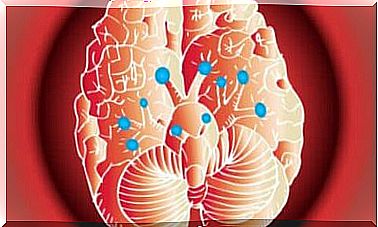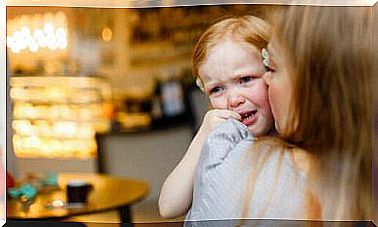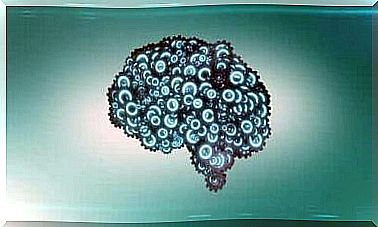When Parents Have Paranoid Personality Disorder
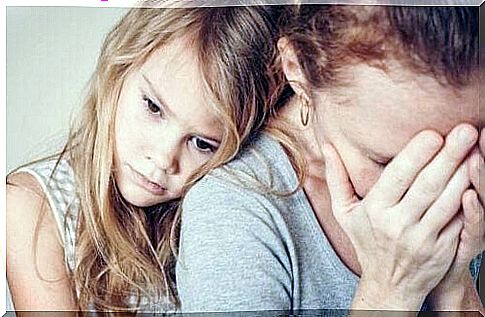
Although not talked about often, some children have parents with paranoid personality disorder. These children experience the effects of unstable family relationships, emotional instability and a dysfunctional environment. Later in life, they have an increased risk of mental illness. These children and their families need the help of medical professionals.
People with personality disorders, schizophrenia and dissociative disorders are still human. They fall in love and have children and their own families. But without proper social support and support from the family, many of them have to deal with complex, difficult family situations that others often do not notice.
Unfortunately, people with paranoid personality disorder often find it difficult to form relationships with people around them. To make matters worse, it is also a difficult mental disorder to treat. All of this can quickly create very complex family situations, as children are very vulnerable above. Therefore, it is important to raise awareness of the difficult home situations this mental illness can cause and treat them with compassion.

Living with someone with paranoid personality disorder
We still do not know how or why some people develop paranoid personality disorder. It is generally believed to be a complex combination of biological, genetic and social factors. However, this disorder can be one of the most difficult to deal with for several reasons. It not only affects all areas of the person’s life, it makes it very difficult to create healthy relationships, including personal, work-related and family relationships.
Some common characteristics of paranoid personality disorder are:
- General mistrust. This disorder usually occurs in adolescence, when it manifests itself as continuous suspicion and thoughts that others are out to take them.
- Continuous suspicion that others will deceive, betray or surrender them.
- Excessive concern.
- Need for constant proof of trust and loyalty.
- Poor emotional skills and management. Not being able to forgive or forget perceived insults, even to bear resentment in a compulsive way.
- Too awake, always looking for signs of threat or danger.
- Always suspicious and defensive.
- Cold and hostile.

Children of people with paranoid personality disorder
There have been several studies on the effects of having a parent with paranoid personality disorder. But remember that the effect on children is twofold. First, paranoid personality disorder has a genetic component. There is clear evidence that the tendency to develop this disease can be transmitted from one generation to the next.
However, genetics never guarantees that someone will develop a mental illness. Undoubtedly, their environment and upbringing have a greater significance for a child’s development. The other way a parent’s illness affects children is where the real problem lies. Let’s take a look at what scientific research shows about the growth and development of children growing up with a parent with paranoid personality disorder.
Training and development effects
- At the age of two, children are already more evasive and less receptive to external stimuli.
- Insecure, unstable and stressful family relationships mean that children have a strong fear of abandonment, constantly seek comfort, and also act with distrust and hyperactivity.
- Parents with paranoid personality disorder are often emotionally inconsistent. They can go from very emotional to cold and hostile in an instant. This inconsistent way of raising children creates a high stress environment that affects the child’s brain development.
- Low self-esteem and negative self-image.
- They collect their feelings because their parents have long invalidated their feelings and emotional needs.
- Very poor school performance.
- Children can feel guilty when they finally understand their parents’ illness.
- Parents with paranoid personality disorder are often overprotective. Sometimes they do not allow their children to socialize in an attempt to protect them from being abandoned later.
- During adolescence, children often become threatening or involved in criminal activity. They also often suffer from anxiety disorders, depression or other mental disorders.
Existing interventions
Children of people with paranoid personality disorder undoubtedly need personal psychosocial interventions. But it is important to remember that an unpredictable family environment has far-reaching effects, and that treatment should not focus on the child alone. Intervention and treatment should extend to the whole environment, including the parents.
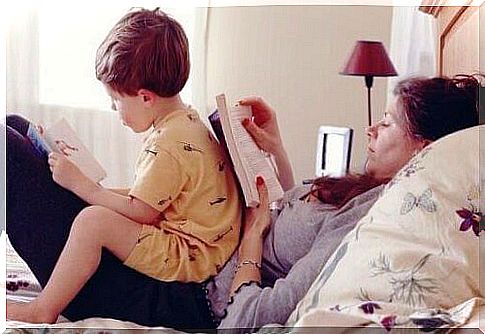
- When someone with paranoid personality disorder has children, it is important that they undergo psychotherapy to encourage the child. The mother or father should be encouraged to talk about their own childhood experiences. Comparing childhood with their current relationship with their children can help them understand how to break the cycle of unstable relationships.
- In addition, the family needs appropriate psychosocial support to help them develop support networks. It is also important to teach the family the skills needed to create stable relationships, routines and habits.
However, older children who are already in school will need much more specific psychological interventions. The child or young person needs help to develop good self-confidence and build positive relationships with their peers. They should also be encouraged to pursue hobbies and pursue their interests as a tool to help them deal with the stress of having a mentally ill parent.
Children of people with paranoid personality disorder need specific help in many aspects of their lives. With the right support, however, they can grow up to be healthy, happy and productive people.


